The Pao School community is devoted to whole-person education, and graduates have a wide range of hobbies and interests. At the same time, Pao School invests significant resources in each and every student’s individual development. Over time, this has helped form the school’s distinct, diverse and inclusive campus culture.
A place without limits
Sabrina of the Class of 2021 will begin her studies in the fall at Smith College in Massachusetts, USA, where she plans to major in biology. Sabrina’s educational journey reached a turning point when she transferred to Pao School in Year 9. Compared to her previous school, she found that Pao School focuses more on students’ holistic development. That means studying music, sports and art is just as important as learning grammar, mathematics and English. Further, Pao School’s many co-curriculars allow students to develop their leadership skills and expertise in different areas.
From a young age, Sabrina has had a keen interest in traditional Chinese culture, in particular classical Chinese poetry. Reading and reciting these elegantly written classical Chinese poems have helped her cultivate her inner spirit and brought her peace of mind.
Sabrina is also interested in Kun Opera (Kunqu), which she began to learn six years ago. In Year 10, she founded the Kun Opera Club with Luna, a singer also in Year 10. The club works to translate Kun Opera into English, hoping to share this traditional Chinese performing art with everyone who appreciates Chinese culture. In Year 11, they teamed up with Sophia, who had studied Peking Opera in Year 10, to also establish the Chinese Opera Club.
The club was a big hit, attracting not only students interested in Chinese opera, but also teachers. Over time, the club has developed a large range of activities. Their members all learned how to sing "Zao Luo Pao,”; they invited teachers of Kun Opera to visit campus and give presentations; they interviewed the Beijing Opera Theatre, and finally performed during morning assembly.
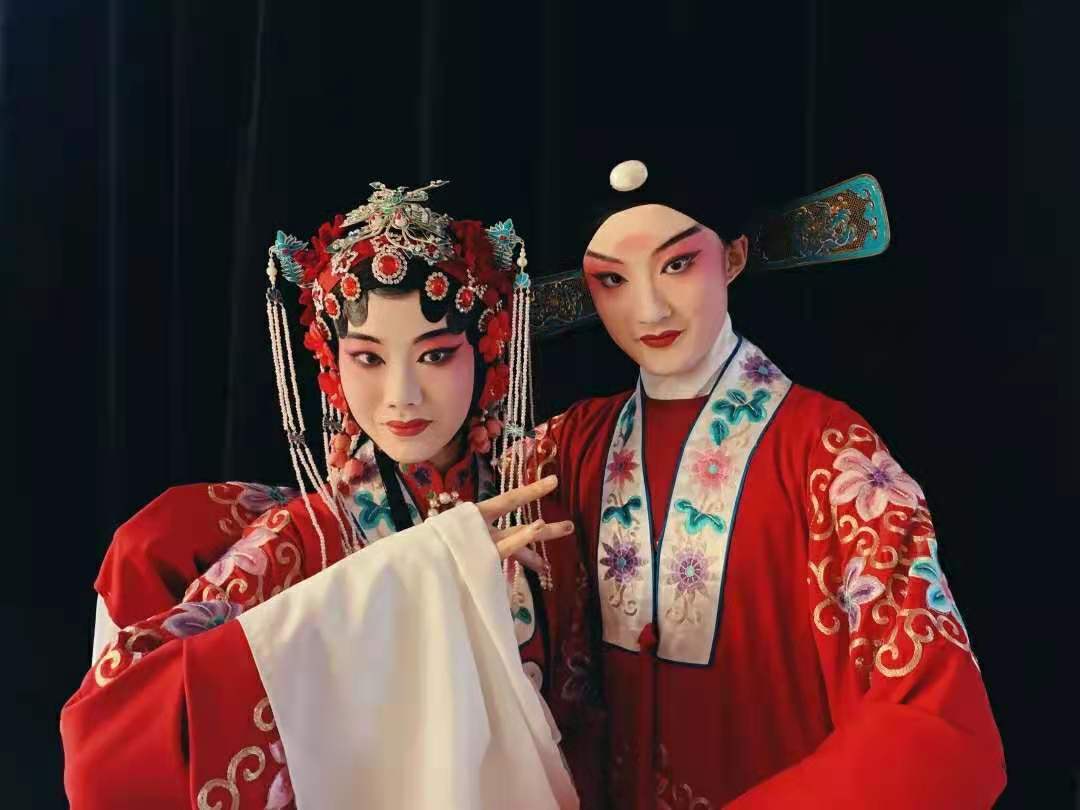
In addition to the Chinese Opera Club, Sabrina also especially likes the Field Study Club, a group Pao School students set up to focus on philanthropic work. As the co-presidents of Field Study, Sabrina and Ruby have organized many philanthropic activities together. Two events left a particularly lasting impression on Sabrina: the “Pie on Face” event held in May 2019 and the “Heart on Fire” charity concert held in November of the same year.
The original purpose of these two events was raise funds for the Pneumoconiosis Foundation to help patients with pneumoconiosis. However, after the new coronavirus outbreak in Wuhan last year, FS members also used funds raised in the past to purchase epidemic prevention materials, which they donated to local hospitals. By helping Wuhan hospitals fight the virus, Sabrina felt the solidarity of Pao School student clubs.
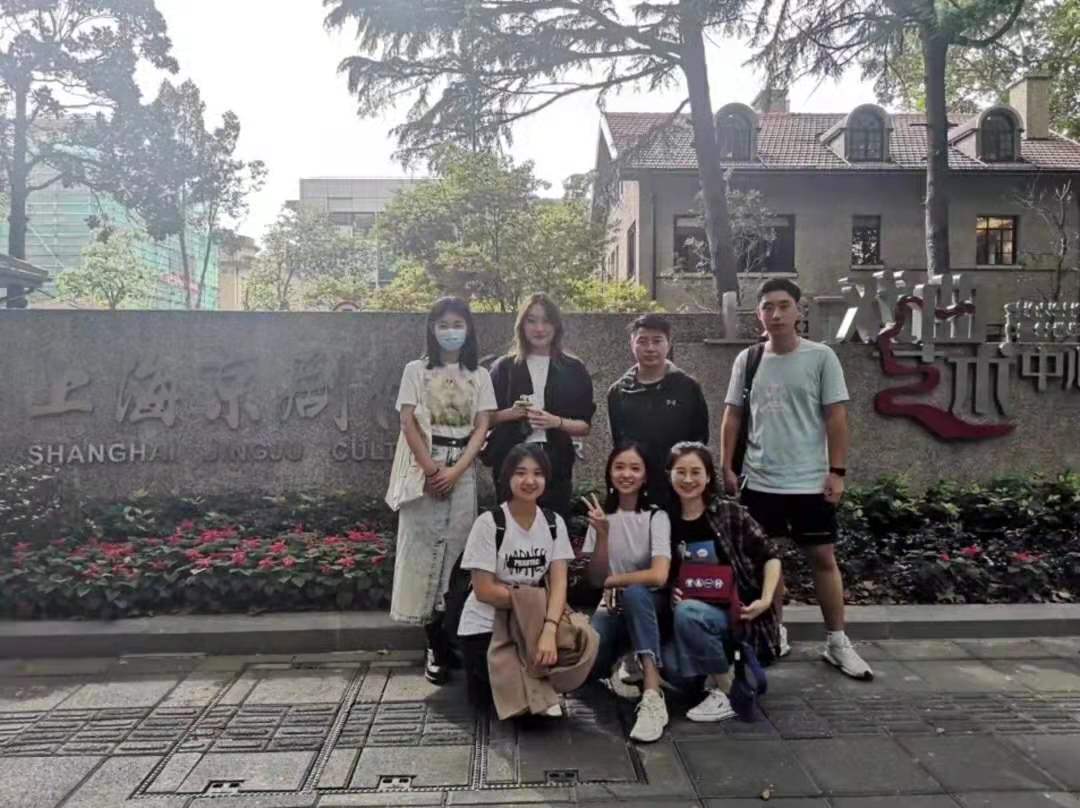
Melody, who was admitted to Tufts University, has also cultivated her personal interests at Pao School. In Year 9, Melody joined the school’s Model United Nations club. Participating in the club has been a rewarding experience for her in many ways. For instance, she has improved her personal expression and leadership skills, enriched her understanding of international affairs, and has learned how to analyze related issues from different perspectives.
In Melody’s view, Pao School is a tolerant and open-minded place, which is made up of people from many different countries and cultures. Since Pao School has a very international teaching team, students are able to get firsthand experience about different cultures from their teachers. Pao School is also a forward-looking educational institution. It not only guides students to focus on the next steps in their learning, but also helps them plan for the future.
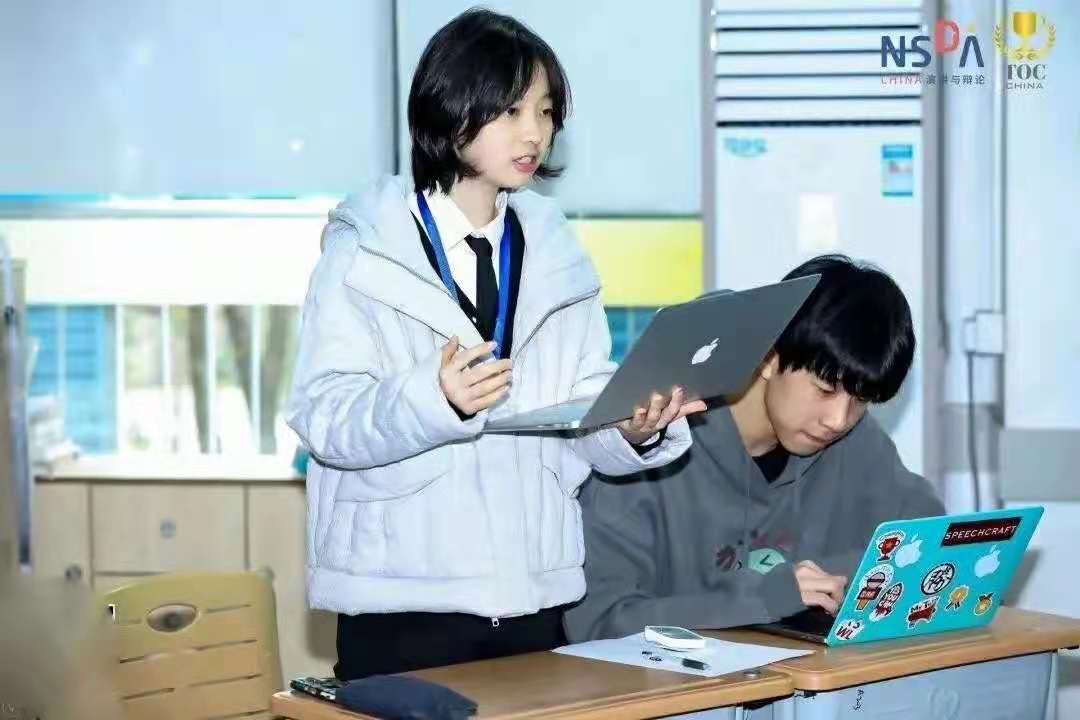
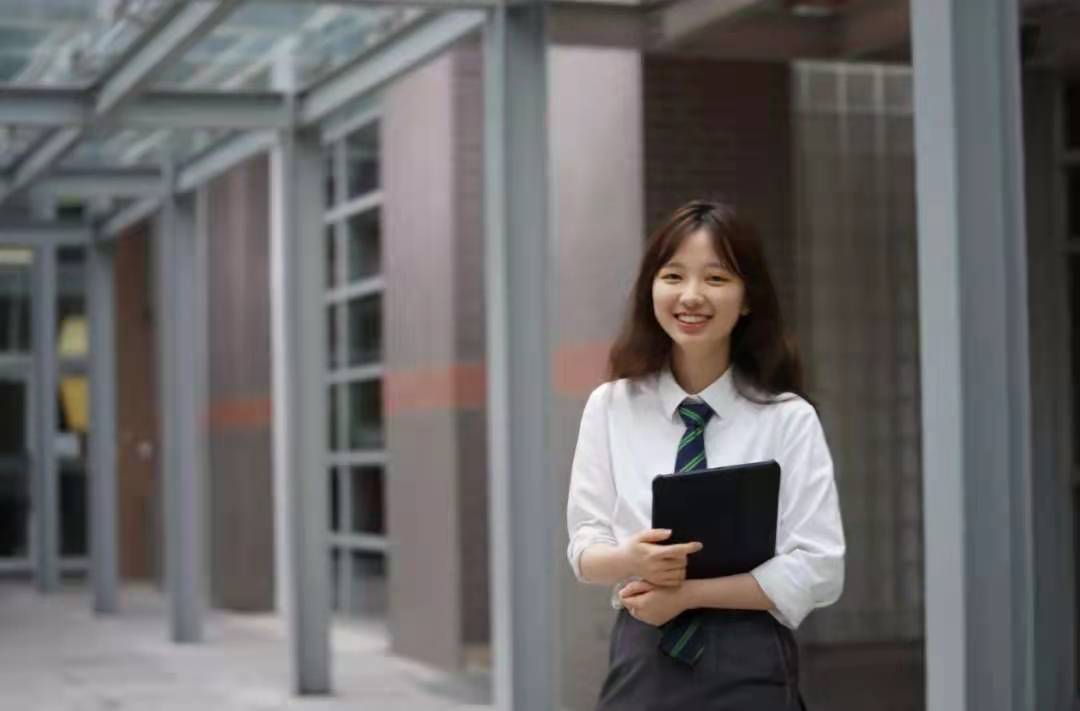
Melody feels that her classmates at Pao School are very distinctive. Many have discovered their academic interests at a relatively young age and developed a special level of understanding in a diverse range of areas – from languages, mathematics, English, physics, astronomy, psychology, poetry, literature, through to debate.
Melody particularly cherishes the close friendships she has forged at Pao School as well as the collegial campus culture.
“Pao School is a place where you are never criticized for being different,” she says. “Rather, you will find that the school welcomes diversity among its students and you can always be yourself. Pao School is a truly an inclusive place. Here you will not look down on others, and you will not be looked down on."
Room to develop for everyone
Jenny learned about Pao School from her older brother, who previously studied at the school. Jenny’s brother strongly recommended she study at Pao School: He lauded its vibrant campus culture, the healthy competition among students and the emphasis the school places on physical education. With that in mind, during her summer vacation, Jenny attended the Primary School’s summer camp, which left a deep impression on her, and later, after returning to China from her studies in the United States, she applied to Pao School.
When talking about the growth of her children at Pao School, Jenny's mother said: "In Pao School, every child has room for his/her own development. Ideas can be expressed boldly, and the children can put into practice the things they want to do.”
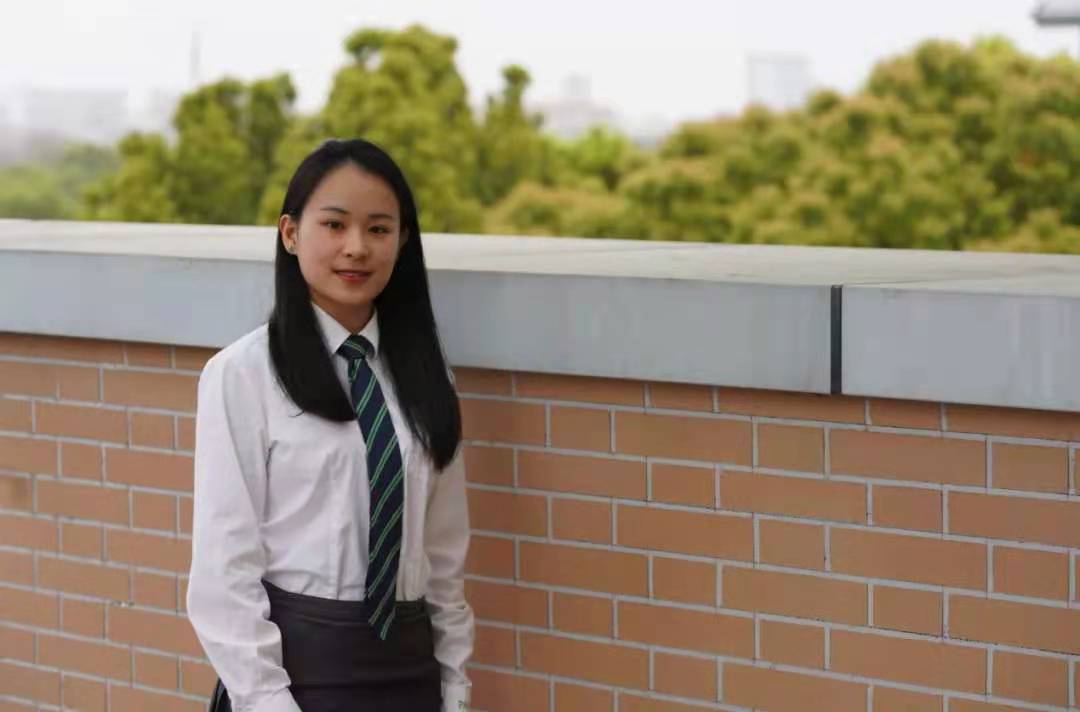
In early 2021, Jenny received an acceptance letter from Duke University in the United States, where she will study environmental science and policy. Jenny has long been concerned about climate change and focused on environmental protection. In Year 11, she decided to study Pao School’s carbon emissions. She initially planned to analyze the school’s use of natural gas and electricity for energy purposes and write research reports based on her findings. However, lacking data, she contacted Executive Headmaster Mark Bishop, and requested his assistance. Upon learning about Jenny’s situation, Mark Bishop put her in touch with Bill, another Year 11 student researching the same subject, and also asked the General Affairs Department to provide the students with support.
In her subsequent research, Jenny found that the school had a mature energy-saving system, and regularly issued reports on the subject. Meanwhile, the General Affairs Department proposed that teachers join the energy-saving and emission-reduction team. Soon thereafter, Jenny, Bill, Alex (Year 10), teachers, and the General Affairs Department formed an energy committee to help the school further promote energy conservation and emission reduction. The committee implemented a number of positive changes on campus. For example, they worked with the school’s Green Origin Club to promote the CD-ROM campaign, held energy conservation and emission reduction competitions in the dorms, implemented an energy saving battery management system (BMS), and introduced garbage classification onto campus – which involved cooperating with the General Affairs Department to place bins for dry rubbish, wet rubbish and recycling in the classrooms.
Jenny feels that that her environmental protection ideas can be realized thanks to Pao School. She wants to thank Mark Bishop and the teachers for their strong support. Over the course of her research, she not only learned more about energy conservation and emission reduction, but also discovered that there are many hard-working people behind the scenes who help make the Pao School campus safe and beautiful.
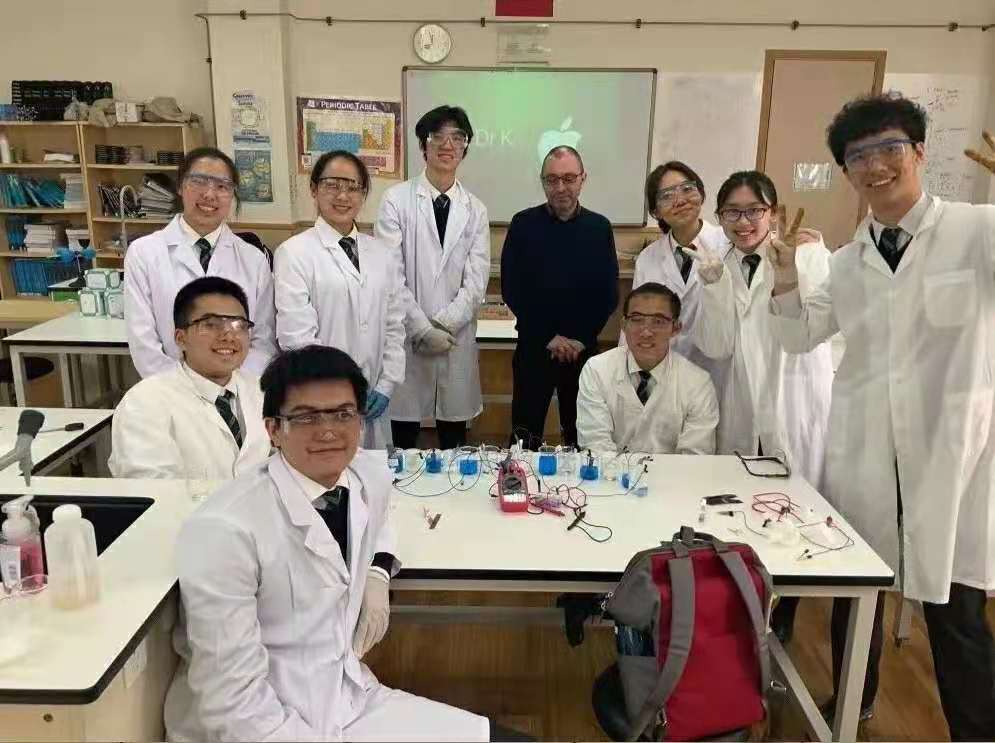
During her time at Pao School, Jenny has also found that Pao School’s teachers are unique and knowledgeable, whilst being always willing to share that knowledge. For example, this year economics teachers analyzed pandemic-induced economic problems in different countries, shared their findings with students, and then everyone discussed future economic development trends together. In addition, the biology teachers shared the latest research reports and information about coronavirus vaccines with students. Jenny concluded that all subjects in Pao School start from textbooks, but that is just the beginning – teachers at Pao School combine the textbook material with real-life situations from today’s world to vivify learning.
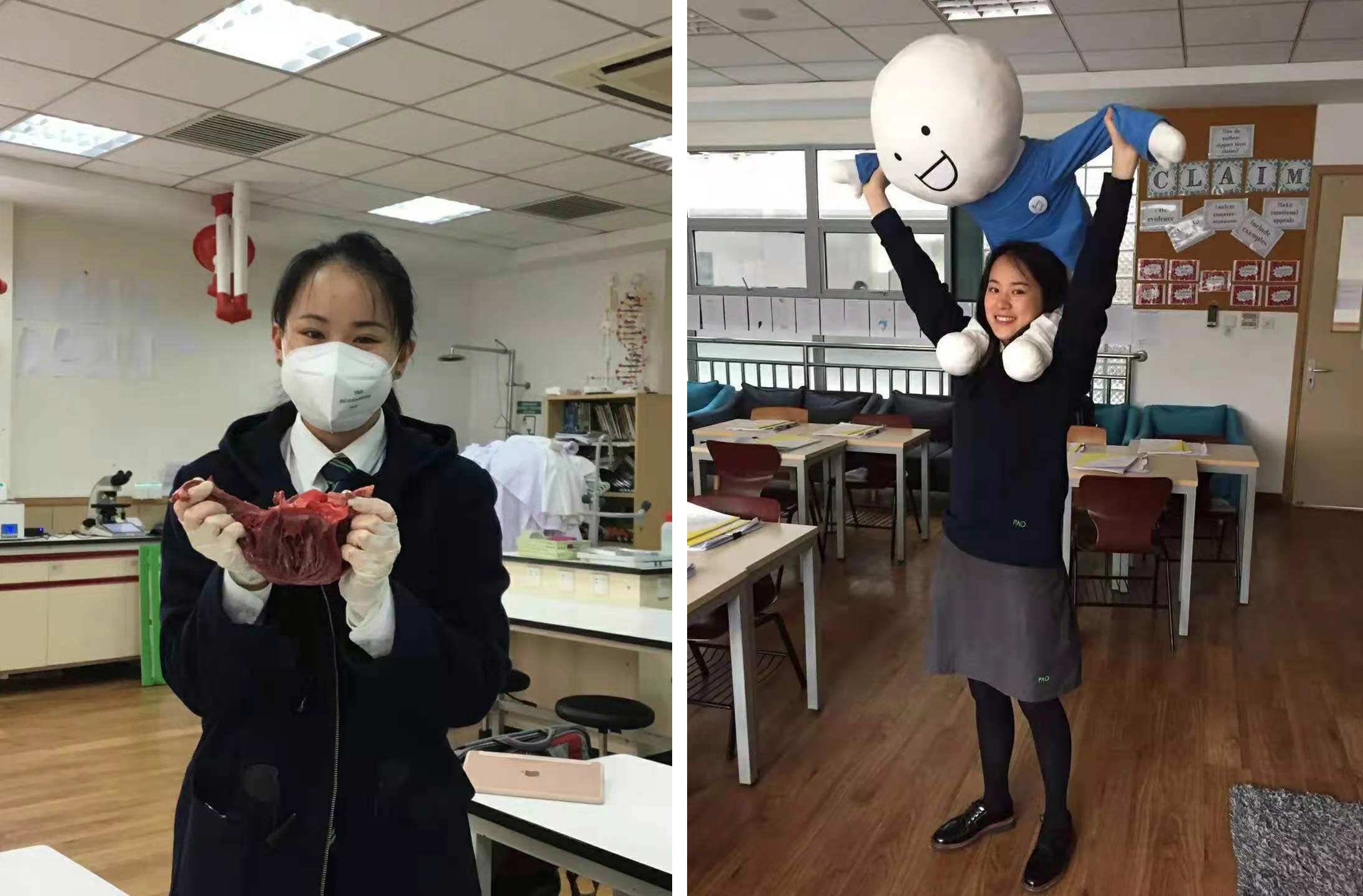
Sabrina has loved life sciences since a young age – that was clear from how, while other children were watching cartoons, she was fascinated with watching documentaries and “Into Science”. When she started taking life science class in Year 8, she was particularly fascinated by the subject matter. When she reached the IB stage, Sabrina did not hesitate to choose advanced biology. The coursework is divided into multiple units, including cell biology, molecular biology, genetics, ecology, human physiology, genetics, flora and fauna, and so on. Students use a variety of methods and techniques to explore the world of biology in the course.
Sabrina’s IB biology teacher Gaynor left a deep impression on her: “He is a serious person, but he can also be quite humorous,” she says. Gaynor uses a combination of videos (such as documentaries) and PPTs when he teaches biology class, she says, adding that Gaynor puts theory into practice by showing students how to dissect organs by hand.
“When it was time to prepare for exams, he even set a daily alarm clock for himself,” Sabrina says. “Every day he sent key learning tips to students on time to help them prepare for their exams. This is really amazing!"
One-on-one classes, but still together
Pao School’s open and inclusive community is also reflected in the school’s international students. This year, amongst the 2021 graduating class, Karen and Non will be remotely graduating alongside their Pao School classmates. Despite facing challenging circumstances due to the pandemic – as they were unable to return to China after the Chinese New Year break – both persevered through 18 months of online learning in their home countries. Their dedication truly embodies the Pao School character strength of commitment.
Karen and Non, from Indonesia and Thailand respectively, both have family roots in China. It was this heritage that originally interested them in exploring Chinese culture and influenced them to join Pao School. In the autumn, Karen will be joining the UBC Sauder School of Business to study commerce and Non will be continuing his global education at UCL in London.
Both Karen and Non spent the majority of their time at Pao School in online classes, after originally studying on campus for one semester. Studying online for this extended period was challenging due to the distance between themselves and their teachers and friends. They both had to develop new skills, such as independent learning and to develop a sense of when to seek out extra help with their work. Karen explains that when she had a problem, she often quickly sent an email to a teacher or sent a WeChat message to a friend.
“Since only Non and I are doing online learning, we tend to zoom in with the entire class so that we know what the class is learning.” Explains Karen. In other classes such as economics and maths, the teachers would arrange on-to-one classes in their free periods to catch them up on content they may have missed. In addition, if she had any problems, Karen’s friends and teachers would make sure she got photos and notes to help her complete her work.
Alongside ensuring she kept up with academics, frequent communication was also vital for her wellbeing. To make sure she was coping, Karen's tutor, Ms. Gallaway, and House Mistress, Ms. Cohen, would often send emails and hold zoom meetings to check on her wellbeing. They used the time to provide advice and check-in, which made Karen “feel less stressed and worried” about her work. These frequent communications and her ability to join her classes through video helped her feel updated about the school and has helped her maintain strong bonds with all her friends and teachers.
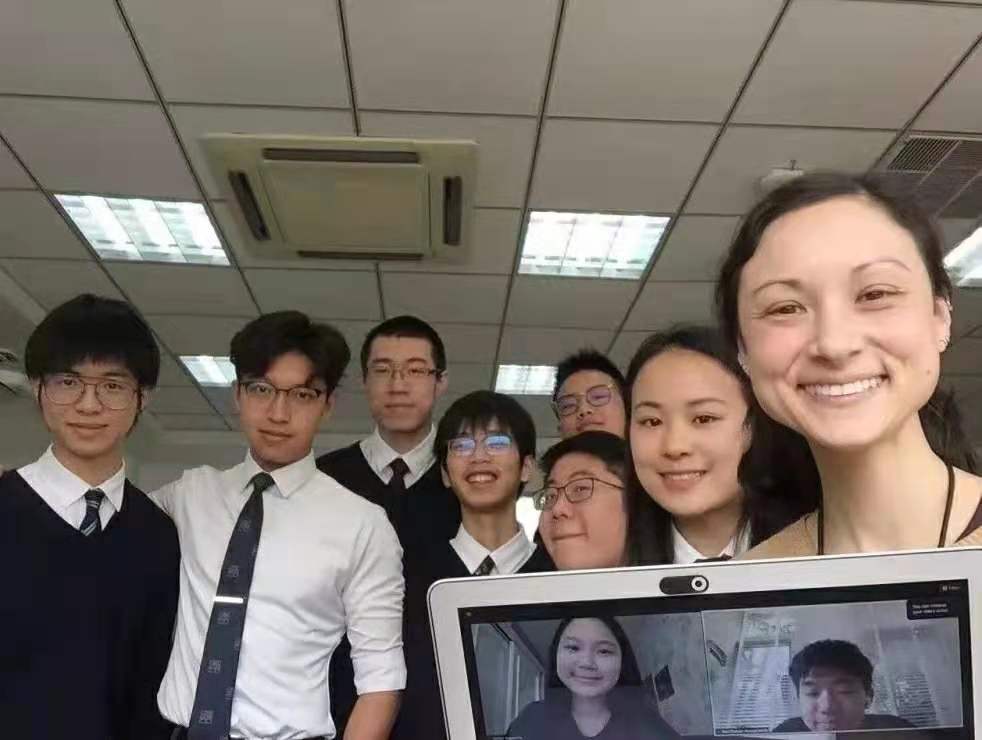
Karen says that this feeling of community was also an important part of her life during her time on campus at Pao School. For her, the most significant support she received for adapting to China and the school was from the 7-day boarding programme. The teachers and students were always happy to help her adapt to both ‘the new environment and curriculum’.
Despite the challenges of the year, Karen overcame the distance and was recognized by the school in winning Subject Awards of Achievement for Chinese Language B and Computer Science.
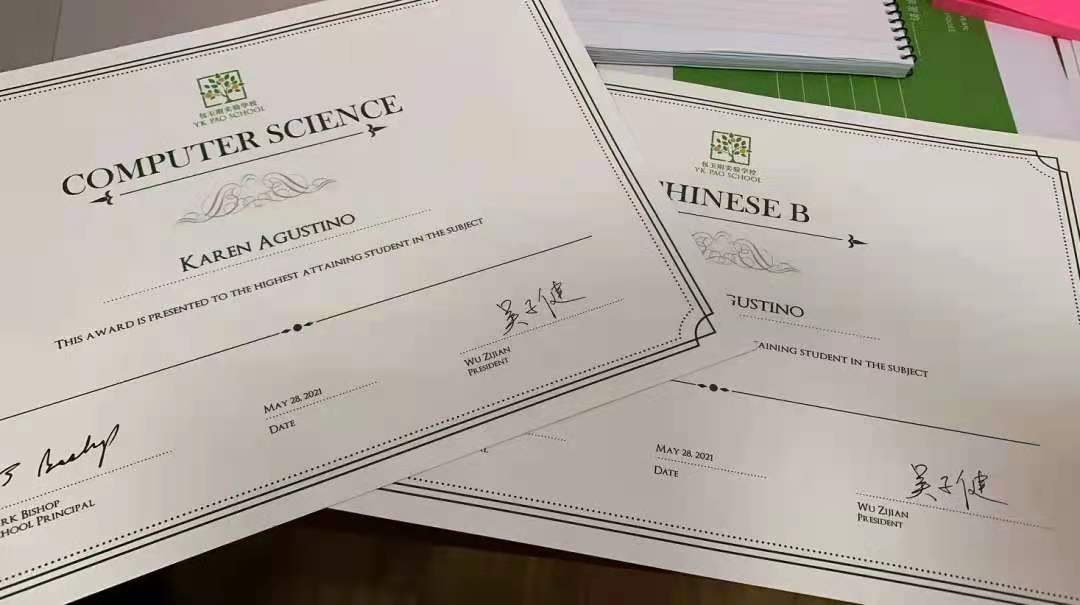
“There are three words to describe Pao School: crazy, memorable, amazing. In these past two years, I have learned so much and met so many kind-hearted people around campus. Though I admit that completing all the IB assignments was pretty hectic, especially when I had to do everything online, I am glad that I've made it through with support from all the caring teachers and friends around me.”
—— Karen